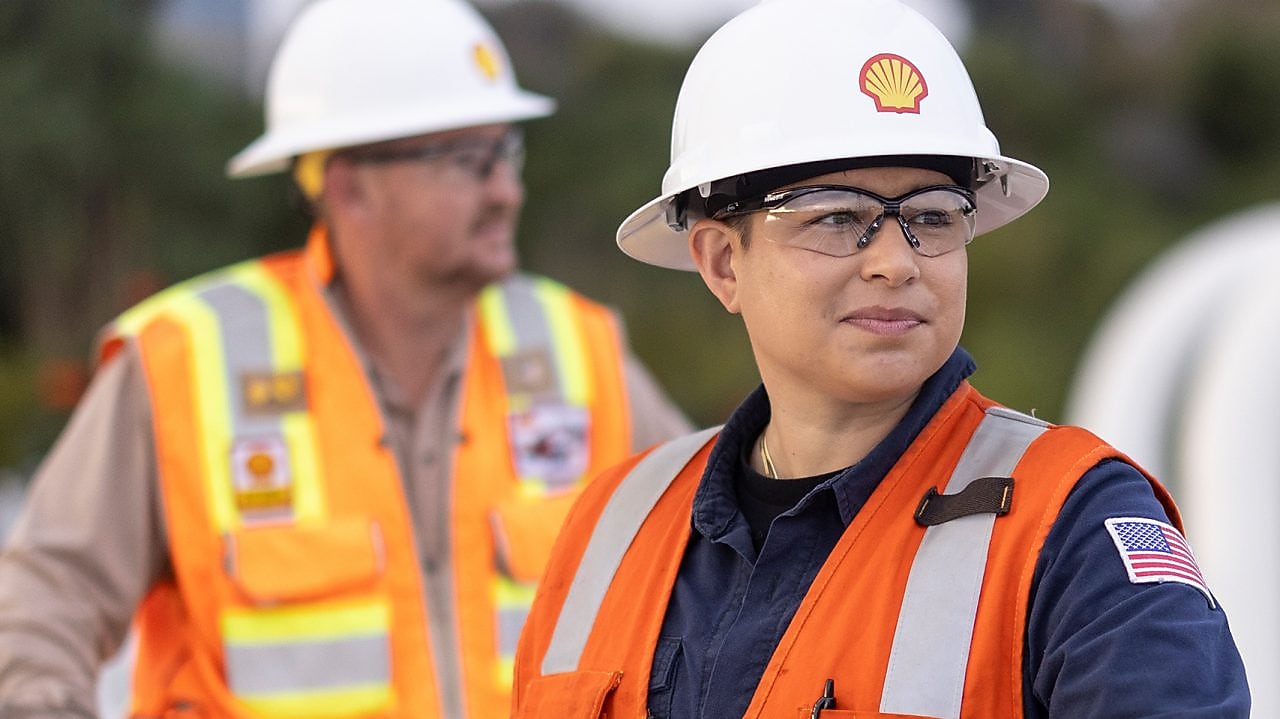Local content and socio-economic impact
Shell promotes local economic development, generates shared value for countries and communities, and stimulates diversity, equity, and inclusion in our supply chains.
We do this by:
Employing local people
Partnering with diverse local suppliers
Building local skills and expertise
Local content, or in-country value (ICV), often refers to government policies to prioritize and develop local manufacturing, suppliers, products, and workforce. It does not include taxes and royalties paid to governments. As local content requirements evolve, countries also consider how they can maximise benefits to communities as they transition their energy systems.
Our approach is guided by the Shell General Business Principles, govern the way we work every day.
Shell integrates local content considerations into its decision-making throughout a project’s lifecycle with the intent of creating long-term impact and ensuring that communities fully benefit from having Shell as a neighbour.
Employing local people

Shell provides competitively paid employment opportunities at a range of skill levels and invests in long-term skills training. In 2023, Shell employed around 103,000 in more than 70 countries.
We proactively identify skill and capability gaps for traditional and emerging businesses; offer training to address these gaps; and if needed recruit talent externally to add to the skills and experiences of our workforce.
Partnering with diverse local suppliers
Shell focuses on bringing qualified, diverse suppliers into our procurement process and helping companies local to our operations set themselves up to join our supply chain. In 2023, our operated and non-operated ventures spent around $48.6 billion on goods and services globally2 (of that, 83% was spent with suppliers based in the same country of operation). We worked with around 25,000 suppliers and estimate 12% of total spend was in countries that have a gross national income of less than $15,000 a year per person3.
Supplier diversity is an important part of creating and sharing social and economic benefits. In countries around the world, we buy from and support the development of businesses that are part of historically underrepresented or underserved groups, such as those owned by women, ethnic minorities, persons with disability, veterans, and members of the LGBT+ community.

Building local skills and expertise

Working closely with partners we help strengthen local businesses and provide skills development and support for entrepreneurs. In 2024, 264,000 formal training days were delivered to employees and joint-venture partners. We also invest in skills, capacity building and community programmes so that local communities can benefit from social and economic development. By building workforce capability we can improve resilience amid global economic uncertainty and stimulate sustainable growth in local markets.
1 Shell paid $14 billion in corporate income taxes and $6 billion in government royalties in 2023.
2 Non-GAAP financial measure. See Reconciliation of non-GAAP financial measures where non-GAAP reconciliation is provided.
3 According to the United Nations Development Programme’s Human Development Index 2021.
Shell measures its socio-economic impact in countries where it operates
Below are examples of recent country assessments that illustrate in more detail the impact of Shell's operations and activities.
Shell's business activities benefit both the people and businesses that we work with, and the economies in the countries in which we operate.


